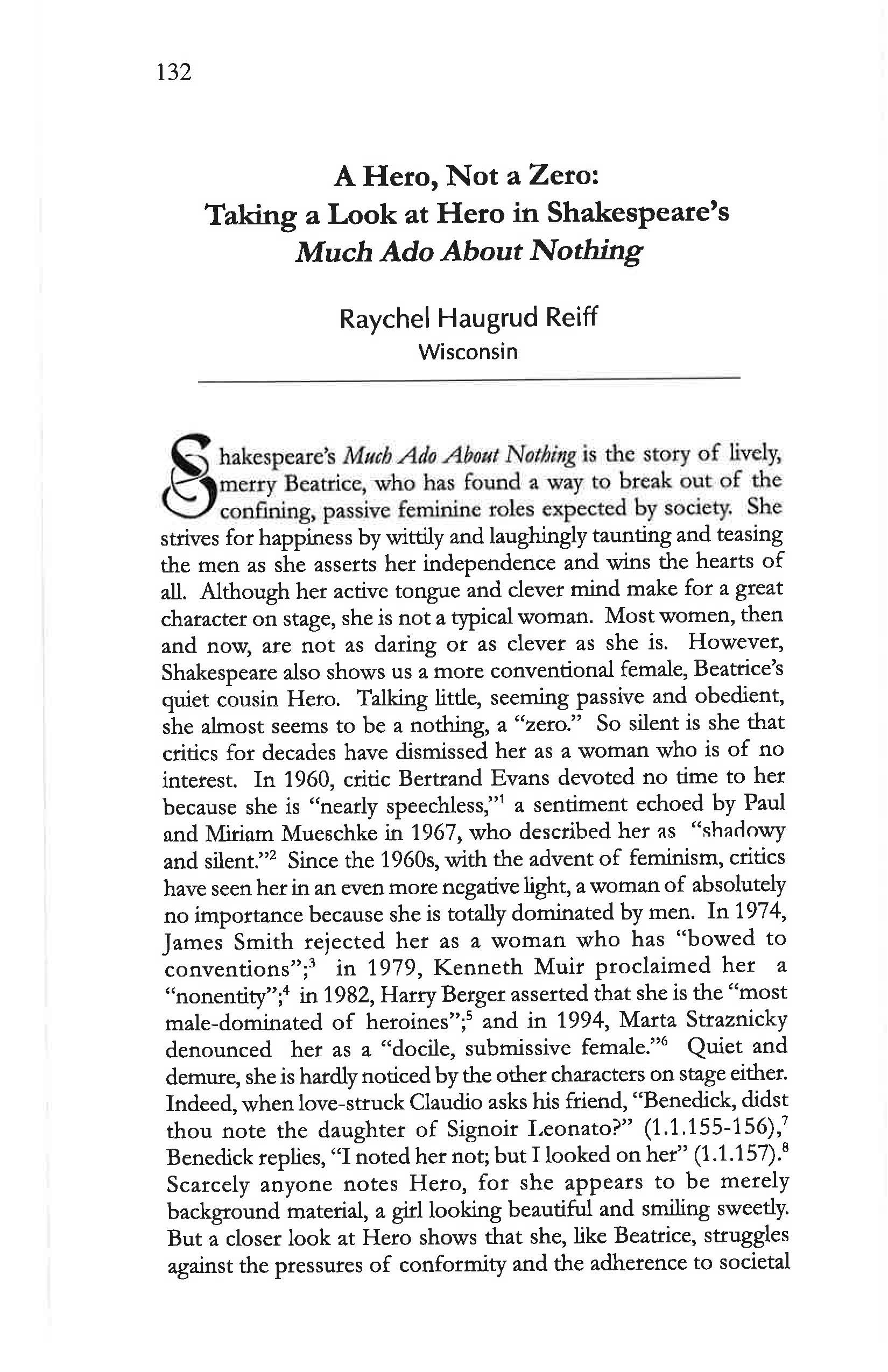A Hero, Not a Zero: Taking a Look at Hero in Shakespeare's Much Ado About Nothing
Main Article Content
Abstract
Shakespeare’s Much Ado About Nothing is the story of lively, merry Beatrice, who has found a way to break out of the confining, passive feminine roles expected by society. She strives for happiness by wittily and laughingly taunting and teasing the men as she asserts her independence and wins the hearts of all. Although her active tongue and clever mind make for a great character on stage, she is not a typical woman. Most women, then and now, are not as daring or clever as she is. However, Shakespeare also shows us a more conventional female, Beatrice’s quiet cousin Hero. Talking little, seeming passive and obedient, she almost seems to be a nothing, a “zero.” So silent is she that critics for decades have dismissed her as a woman who is no interest. In 1960, critic Bertrand Evans devoted no time to her because she is “nearly speechless,”1 a sentiment echoed by Paul and Miriam Mueschke in 1967, who described her as “shadowy and silent.”2 Since the 1960s, with the advent of feminism, critics have seen her in an even more negative light, a woman of absolutely no importance because she is totally dominated by men. In 1974, James Smith rejected her as a woman who has “bowed to conventions”;3 in 1979, Kenneth Muir proclaimed her a “nonentity”;4 in 1982, Harry Berger asserted that she is the “most male-dominated of heroines”;5 and in 1994, Marta Straznicky denounced her as a “docile, submissive female.”6 Quiet and demure, she is hardly noticed by the other characters on stage either. Indeed, when love-struck Claudio asks his friend, “Benedick, didst thou not the daughter of Signoir Leonato?” (1.1.155-156),7 Benedick replies, “I noted her not; but I looked on her” (1.1.157).8 Scarcely anyone notes Hero, for she appears to be merely background material, a girl looking beautiful and smiling sweetly. But a closer look at Hero shows that she, like Beatrice, struggles against the pressures of conformity and the adherence to societal rules of being a sweet, passive female. However, she does not do this in the same manner as flamboyant Beatrice who openly asserts herself with much talking and with great humor. Yet in her quiet ways Hero, like her cousin, actively pursues happiness for herself and for those she loves.
